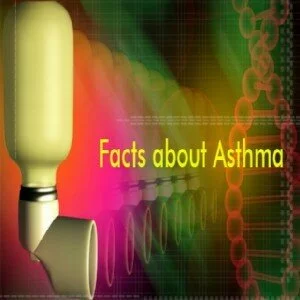Asthma is a non-communicable lifelong condition characterized by occasional narrowing and swelling of the airways through which air enters and leaves our lungs. During an asthmatic attack the person finds it difficult to breathe and the breathing is very whistling in character. Asthma can be mild intermittent, mild persistent, moderate or severe depending on frequency of attacks.
Asthma is worldwide, affecting all races and classes of people; rich and poor though its control and complications can be impacted by socioeconomic conditions and life style.
Asthma has no cure but it can be controlled. Because of the importance of the condition, the month of May is called “ Asthma Month” in order to enhance awareness of the disease.
1.Q.What is Asthma?
A.Asthma is a non-communicable lifelong condition characterized by occasional narrowing and swelling of the airways through which air enters and leaves our lungs.
2.Q.What Causes Asthma?
A.The cause of asthma is not quite clear but heredity is thought to play a major role in who gets the disease. If your parent or sibling has it then your risk of having it is high.
Other risk factors include overweight, cigarette smoking, persistent occupational exposure to some chemicals ( those working in places where certain chemicals are used or manufactured such as paint companies, hairdressing saloons are at risk), Persistent exposure to airborne allergens (things that the body can react to such as pollen, mold, cockroaches, dust), persistent exposure to cooking smoke when using wood or charcoal.
3.Q.Can Asthma Spread?
A.Asthma is not a communicable disease; it cannot spread from one person to another
4.Q.When Do You Suspect You May Have Asthma?
A.Repeated episodes of difficulty in breathing, shortness of breath, chest pain and wheezing sound (as you breathe out) which is characteristic of asthma. This may be accompanied by coughing.
5.Q.What Can Put You at Risk of an Asthmatic attack?
A.The following can trigger an asthmatic attack in a person who is an asthmatic; smoking, certain chemicals, pollen, mold, cockroaches, dust, catarrh, stress, cooking smoke, food preservatives and fumes, cold air, exercise and menstrual cycle.
6.Q.What are the Possible Complications of Asthma?
A.Complications of asthma include permanent narrowing of the airways,
damage to the lungs, poor quality of life and death.
7.Q.How can you prevent Asthma?
A.Asthma can be prevented by the use of drugs, change in lifestyle and attention to ones immediate environment like the home and place of work.






No Comments